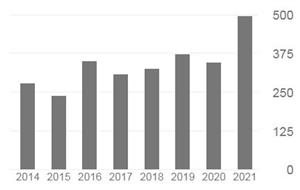Healing of Apical Periodontitis After Endodontic Treatment With and Without Obturation in Dogs
The principle of obturation of the root canal space is generally accepted. This belief has dominated the field of endodontics despite the absence of credible scientific evidence. Little information is available on the possible relationships between endodontic success and obturation of the root canal system. The present study compares the healing of instrumented and obturated versus instrumented and nonobturated root canal systems with apical periodontitis. Fifty-six root canals in 28 third and fourth bilateral lower premolar teeth with completely formed apices in seven mixed German Shepherd dogs were used. Apical lesions were created by accessing the canals, removing the pulp and leaving them open to the oral environment for 42 days. The teeth in the control group were instrumented, irrigated, and then obturated using a lateral condensation technique with gutta-percha cones and AH26 Plus as the endodontic sealer. The teeth in the experimental group were instrumented and irrigated without obturation. All teeth in both groups were sealed coronally. After 190 days, the animals were euthanized. Vital perfusion with 10% formalin through common carotid artery was performed. Thirty to 40 serial 5-m thick sections were obtained from each root and stained with hematoxylin and eosin for histological evaluation by observer blinded to the treatment allocation. The control group showed less cementum and dentin resorption in comparison with test group (p 0.5). No statiscally significant difference was found in other parameters between the control and test groups (p 0.05). The noteworthy finding of this study was that there was no difference in healing of apical periodontitis between the instrumented and obturated and instrumented and nonobturated root canal system. The success of endodontic treatment ultimately depends on the elimination of the microorganism, host response and mechanical closure (coronal seal) of treated root canals that may provide a potential for future bacterial contamination. (J Endod 2006;32:628–633)














